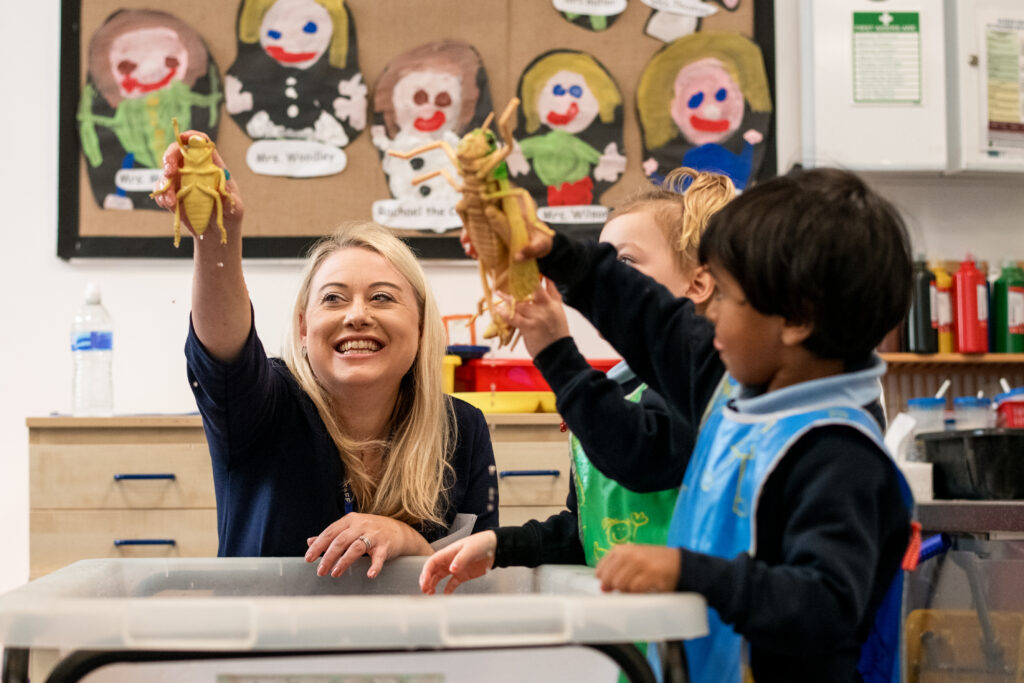Early Years Learning at Babington House
In our Nursery and Reception classes we follow the Early Years Foundation Stage Framework. We
also put an emphasis on the children’s personal, social, emotional and physical development and
encourage their communication and language skills.
We make learning fun and lay the foundation for instilling a love of learning that will last a lifetime.

The Early Years Foundation Stage Curriculum is organised into seven areas of learning; underpinned
by the characteristics of effective learning. There are three prime areas which are:
- Personal, social and emotional development
- Communication and language
- Physical development
There are four specific areas which are:
- Understanding the world
- Literacy
- Mathematics
- Expressive arts and design
Characteristics Of Effective Learning
At Babington House, we place the characteristics of effective learning at the heart of all that we do. Through positive relationships and fun in a nurturing environment, children begin their learning journey.
The three characteristics of effective teaching and learning are:
Creating and thinking critically – children have and develop their own ideas, make links between ideas, and develop strategies for doing things.
Playing and exploring – children investigate and experience things, and ‘have a go’.
Active learning – children concentrate, keep on trying if they encounter difficulties and enjoy achievements.

Phonics and Early Reading
In Nursery the children focus on Little Wandle Foundations in Phonics.
Foundations in Phonics activities are adult led, focusing on the oral segmenting and blending of familiar words, rhyming and hearing initial sounds in words. Children play games which develop a range of skills to support their learning as they advance through the different phases of the programme. All activities are differentiated to suit each child’s level of development.
In Reception the children begin with a focus on the oral segmenting and blending of sounds. The children then move onto phase 2, where they will be focusing on recognising the sound in its written form.
Once the children have developed the skills of recognition, they may be ready to begin to segment and blend simple three letter words. All activities are differentiated to suit each child’s level of development.

